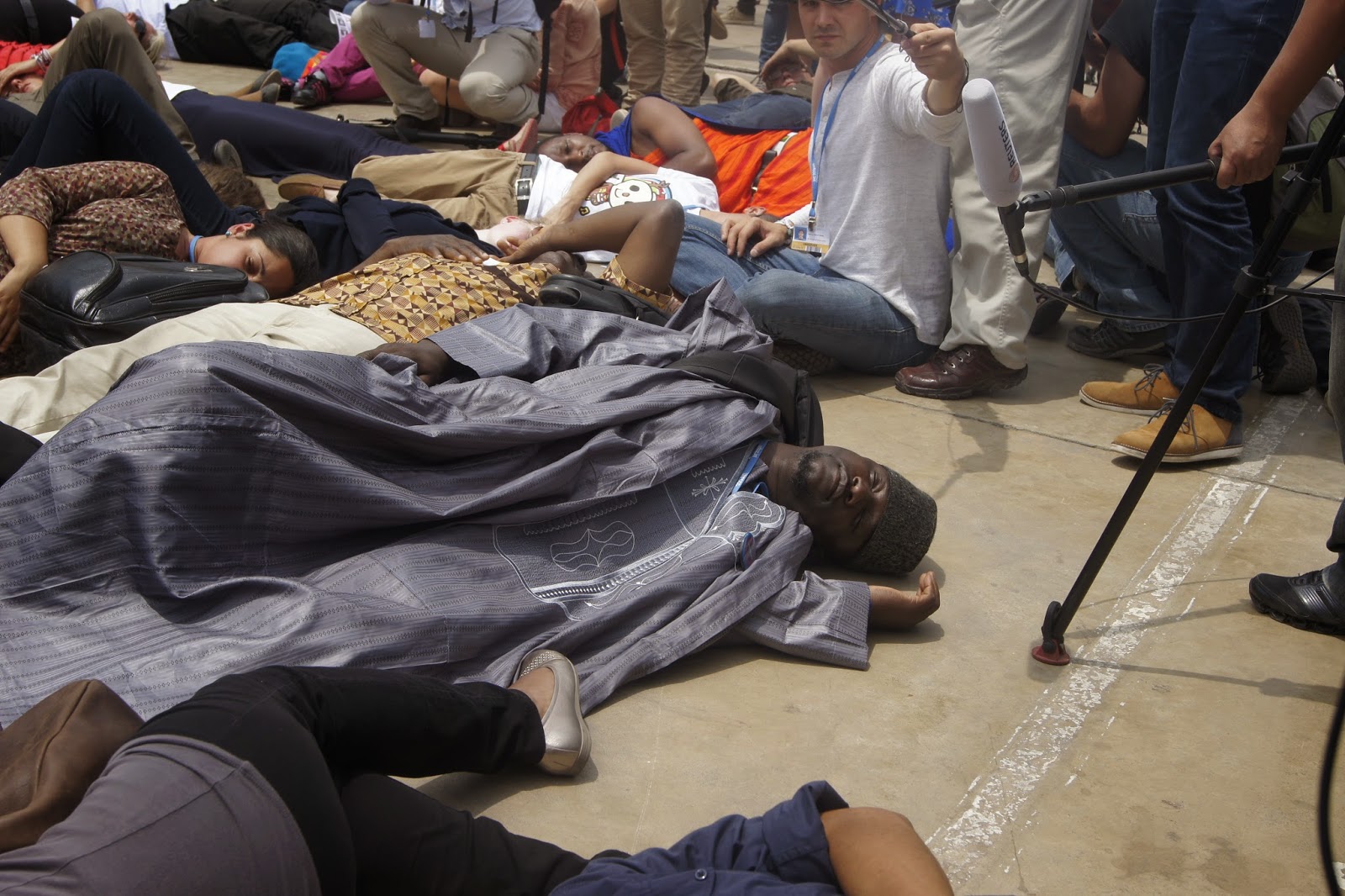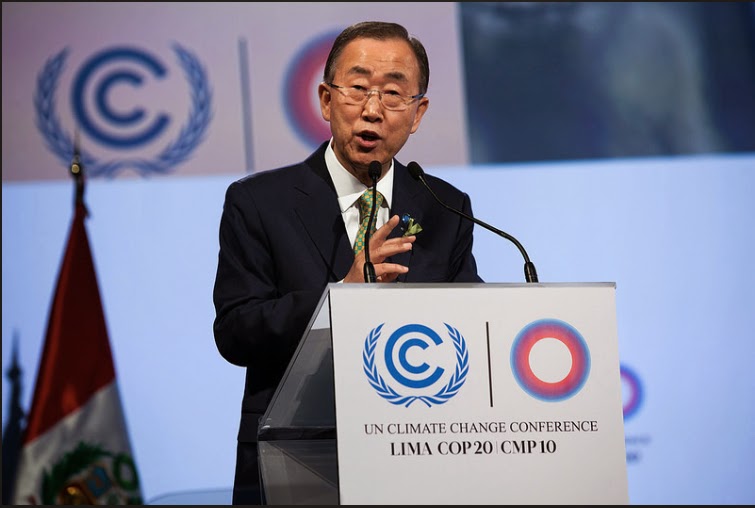At the 2013 climate conference in Warsaw, Poland, civil society groups led by the Pan-African Climate Justice Alliance (PACJA), Friends of the Earth, Global Campaign for Climate Justice, and others staged a massive and unprecedented “walkout” of the negotiations in protest of what they viewed as another year of failed negotiations that cannot guarantee just outcomes. As protesters left the conference halls in Poland, they chanted the phrase, “Volveremos!,” which in Spanish means, “we will return.”
After another year of still rising global warming emissions, diplomats and civil society observers have returned to COP20 in Lima, Peru, with an unrelenting call for justice, but a slightly different tone. With negotiations scheduled to conclude today, members of civil society performed a “die-in” with over 150 participants to reclaim the space and highlight the voices they say are being ignored by the U.N. process.
In unison, demonstrators fell to the ground outside of the plenary hall where a text to set a framework for a global climate “deal” next year in Paris is being negotiated. Speakers from the Philippines, Tanzania, the Dominican Republic, and Peru addressed the crowd of bodies.
 “This
is hypocrisy and duplicity on the part of developed country
governments.” Said Fazal Issa of the Pan African Climate Justice
Alliance (PACJA) from Tanzania.
“This
is hypocrisy and duplicity on the part of developed country
governments.” Said Fazal Issa of the Pan African Climate Justice
Alliance (PACJA) from Tanzania.
“Governments of developed countries are pressuring developing countries when they do not even own up to the inadequacy of their targets and constantly refuse to include climate finance as part of binding agreements. Climate finance for mitigation actions in the South is part of the obligations and fair share of the efforts of developed countries.” Issa told the crowd.
In unison, demonstrators fell to the ground outside of the plenary hall where a text to set a framework for a global climate “deal” next year in Paris is being negotiated. Speakers from the Philippines, Tanzania, the Dominican Republic, and Peru addressed the crowd of bodies.
 “This
is hypocrisy and duplicity on the part of developed country
governments.” Said Fazal Issa of the Pan African Climate Justice
Alliance (PACJA) from Tanzania.
“This
is hypocrisy and duplicity on the part of developed country
governments.” Said Fazal Issa of the Pan African Climate Justice
Alliance (PACJA) from Tanzania.“Governments of developed countries are pressuring developing countries when they do not even own up to the inadequacy of their targets and constantly refuse to include climate finance as part of binding agreements. Climate finance for mitigation actions in the South is part of the obligations and fair share of the efforts of developed countries.” Issa told the crowd.
































%2Band%2BProf.%2BDr.%2BTanay%2BSidki%2Bat%2BUN%2BClimat%2B%2B%2Bchange%2Btalks%2Bin%2BPeru.JPG)














